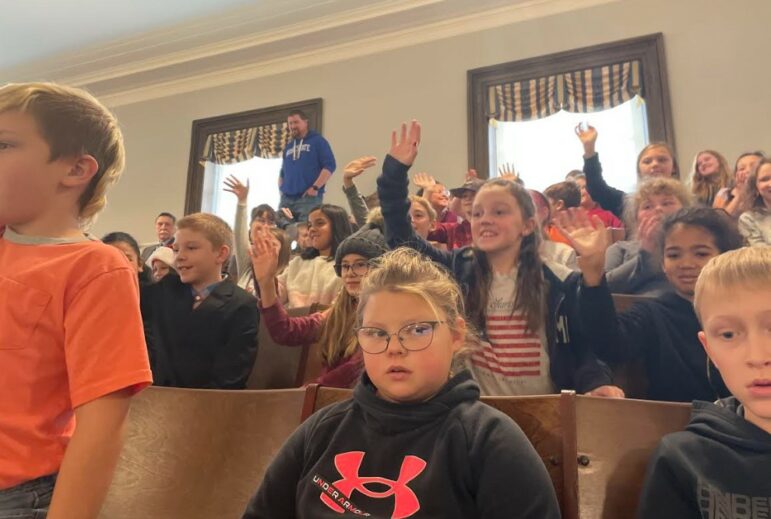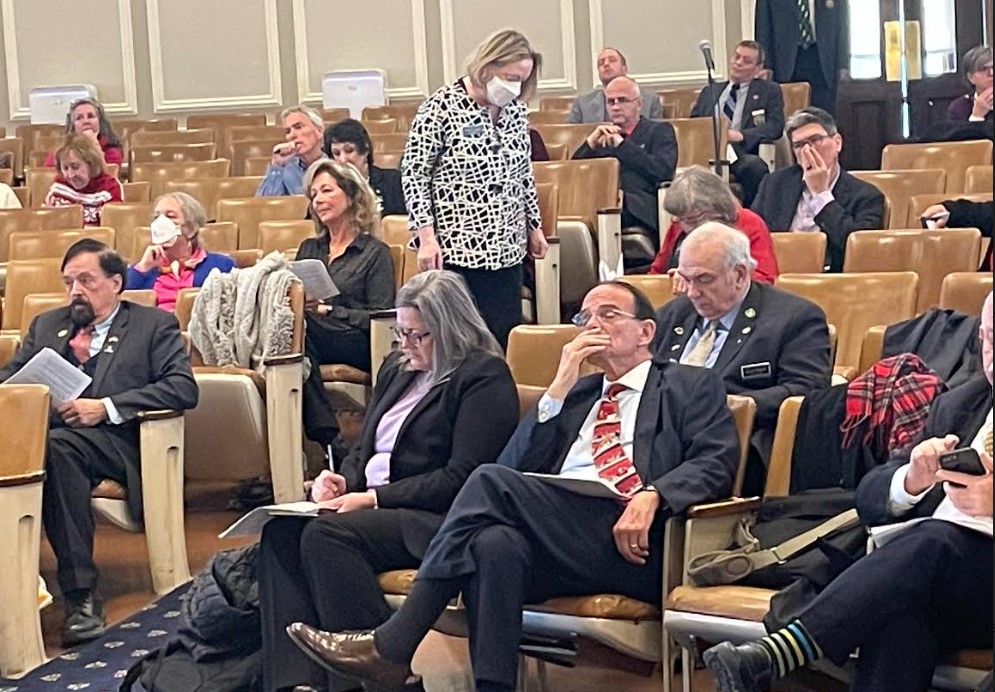
By PAULA TRACY, InDepthNH.org
CONCORD – About 100 legislators came to the State House Thursday to learn new skills in civility.
The voluntary, two-hour workshop was about equally divided between Republicans and Democrats who were urged to avoid divisive labels when talking with those who do not share their view, listen to opposing views and acknowledge them by stating them back to the person, look for ways to find commonality in spite of divergent opinions.
The workshop was led by two former legislators and William Doherty, a professor at the University of Minnesota and co-founder of Braver Angels, “a national citizens movement bringing Americans together to bridge the partisan divide,” according to its literature.
This was the second such workshop offered to legislators, the first was the last term and involved House leaders only. This one was open to all legislators with mileage paid and a luncheon after.
House Speaker Sherman Packard, a Republican, said polarization has escalated dramatically in recent years, “but I hope New Hampshire can rise above that.”
In welcoming the gathering of roughly a quarter of the House members, he said if he had the power, “I would ban Twitter and Facebook from the planet earth. But that is not the reality in today’s world.”
Doherty said: “We’re here to talk about skills, not policy” and learn how to slow down, listen and find common ground.
State Rep. Kimberly Abare, R-Pelham, a first-time legislator, said she wanted to come to learn how to listen better, and “I had the time.”
State Rep. Fred Doucette, R-Salem, who attended the last workshop last year, said he hoped people leave understanding each other a bit better and that there be “maybe a bit less pre-judging” of one another in the coming two-year session.
Doherty, who was the lead facilitator, said the goals of the workshop were to learn to show colleagues that they were heard. One way, he said is by repeating what they said back to them to be sure it was understood.
Another skill was to find new ways to be heard by those who oppose their view.
The third was to look for areas of commonality or similarities among differences that allow them to find common ground as humans.
“It softens the other person,” Doherty said.
The legislators were paired up with others whom they did not know well and would be asked questions to discuss for three minutes.
Using the issue of funding or defunding the police was a question to be explored by the pairs.
They were asked to discuss their views and write down, word-for-word, acknowledgment of what the other had said, “not your own take on it,” Doherty asked.
They were asked to offer an empowering personal story to back up their views.
Douglass Teschner, a Republican and former legislator, and Patricia Higgins, a Democrat and fellow former legislator, who actively volunteered with Braver Angels, were also leaders in the training with Doherty.
Teschner said he left the House in 1998, had seen signs of divisions, and noted social media has worsened.
“Everyone in this legislature has good intentions,” he said. “Serving in this legislature, it can be a challenge,” he said.
“Sometimes you are going to win and sometimes you are going to lose,” he said: “but you can have vigorous policy debates without demonizing someone.”
Doherty said some assumptions should be that everyone who serves has mixed motives that are not simply self-serving and motivated by staying in power.
He urged legislators to avoid negative labels in conversation.
Packard, in welcoming all to the workshop thanked the Braver Angels, “They have all come here to help us move forward.”
“Embracing values of respect, humility, honesty and responsible citizenship, our goal is not to change people’s views of issues but to change their views of each other,” its literature reads.
For more information on Braver Angels visit www.braverangels.org.





